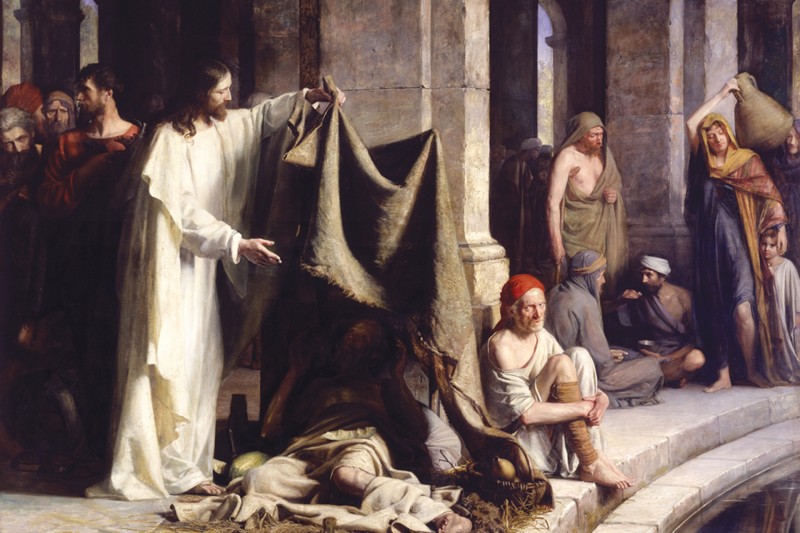A Vision of Jesus
I found in my old manuscripts a text I published in 1986 in Gazeta de Notícias, a newspaper from Rio de Janeiro, Brazil. In it, I ponder: How many have truly grasped that a libertarian thinker like Jesus cannot be confined within the four walls of a temple or have His message reduced by analysts who, no matter how venerable they may be, sometimes mistake “nation” for “human nature?”

Religious individuals enlightened by the spirit of harmony as well as those who cultivate free thinking—in short, open-minded people, both believers and atheists alike—sense this with ease. They long to see Christ’s excellent altruistic influence illuminate every sector of society. They cannot disregard such an extraordinary and sublime competence.
Jesus was a scientist when, by order of the Lord of the Universe, He formed this planet we inhabit; an economist when He multiplied loaves and fishes, ensuring that nothing was wasted; a philosopher when He established His divine doctrine; a psychologist when He tailored it to the understanding of the popular masses; an educator when He conveyed it through parables; a religious figure when, living among the people and preaching to the priests in the temple from the age of 12, He taught them how to lead their lives in a way that would make them worthy of eternal life; a champion of human progress through personal effort when He warned that each one would be rewarded according to their deeds—for Christianity is no school of idleness; a legislator and politician when He declared, through John the Evangelist, that God is Love and that, therefore, everyone must uphold the law of human and social solidarity, loving one another as He Himself has loved us: “There is no greater Love than to lay down one’s life for one’s friends” (the Gospel according to John 15:13). With this, He called the world to the greatest of all reforms—the one that must precede all others—the transformation of the human beings through the knowledge of their spiritual values: “Seek first the Kingdom of God and His Righteousness, and all these things will be given to you as well” (the Gospel according to Matthew 6:33). This principle, set forth by Jesus, lays the foundation for the economy of human solidarity—a cornerstone of the survival strategy we propose for building a society that is solidary, altruistic, and ecumenical.

So, there it is. Ecumenism is an open door to Peace. All this may seem like utopia in a world saturated with hatred and conflicts of every kind. Yet, whether humanity is aware of it or not, it yearns for a less polluted spiritual and social atmosphere. As people attain a higher understanding of their purpose on this planet and come to realize that life continues after death, they will—sooner or later—learn to make use of all the riches of the Earth without becoming enslaved by them.

The comments do not represent the views of this site and are the sole responsibility of their authors. It denied the inclusion of inappropriate materials that violate the moral, good customs, and/or the rights of others. Learn more at Frequently asked questions.